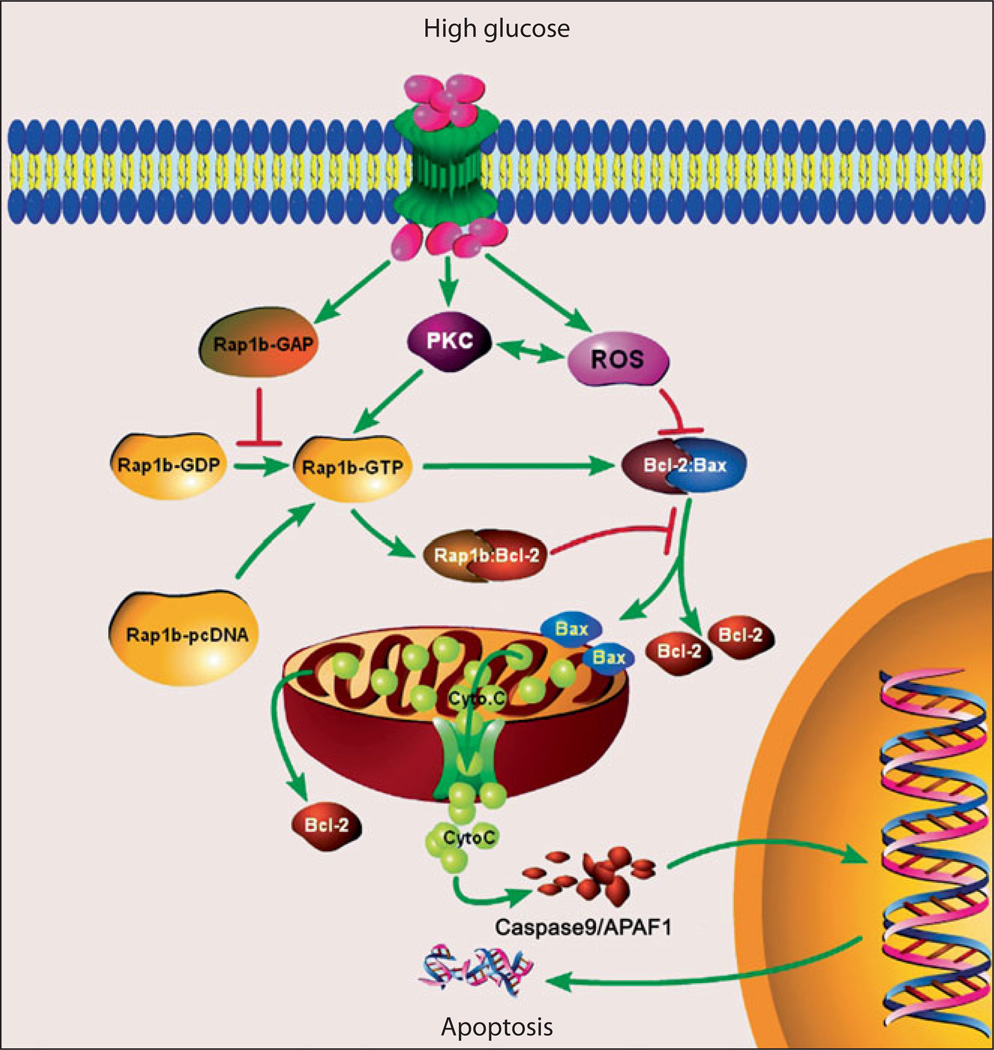Fig. 4.
Schematic drawing of various events following exposure to high glucose ambience and overexpression of Rap1b-GTPase in kidney cells. High glucose ambience leads to activation of PKC and generation of ROS. The latter perturb Bcl2:Bax interactions that leads to the release of mitochondrial cytochrome C, activation of caspases, fragmentation of DNA and consequential apoptosis. Transfection of GTPase Rap1b conceivably stabilizes Bcl2:Bax and Rap1b:Bcl2 interactions and inhibit the release of cytochrome C, oxidant stress, DNA fragmentation and apoptosis [54, 74].

